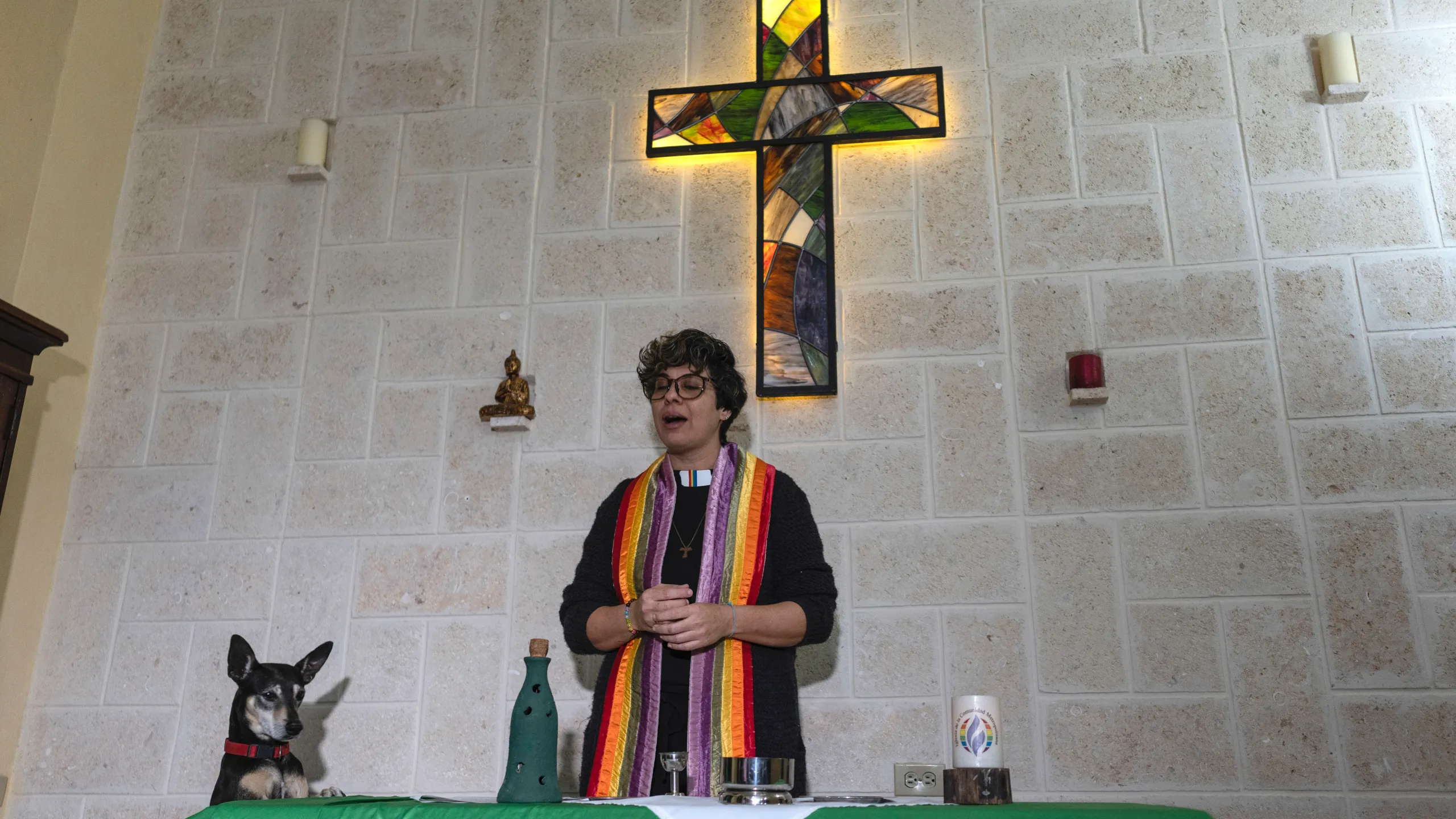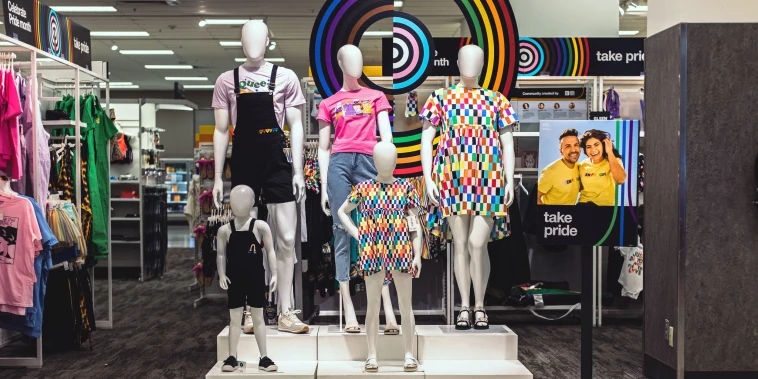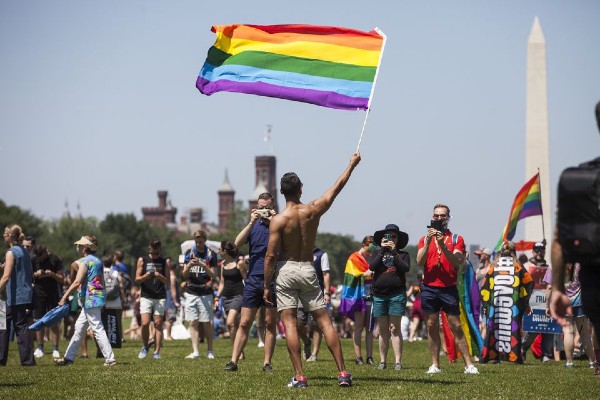Domestic violence rates have surged worldwide during the coronavirus pandemic with some LGBT+ people particularly at risk. Organizations around the world have warned that young LGBT+ people may be stuck in hostile homes during the lockdown. Meanwhile intimate partner violence appears to have soared as couples face the pressures of the crisis. Now LGBT+ domestic […]

Domestic violence rates have surged worldwide during the coronavirus pandemic with some LGBT+ people particularly at risk.
Organizations around the world have warned that young LGBT+ people may be stuck in hostile homes during the lockdown. Meanwhile intimate partner violence appears to have soared as couples face the pressures of the crisis.
Now LGBT+ domestic violence experts are sharing how you can help friends who are victims and abusers.
Research indicates LGBT+ people often turn to their friends first if their partner is abusive or controlling.
Abuse may be physical, emotional, financial or sexual abuse to control, subdue or punish the partner.
Experts say victims who need urgent medical treatment should still go to hospital despite the lockdown. Meanwhile people in immediate danger to contact the police.
Furthermore they give advice on listening to friends, without taking decisions out of their hands.
Domestic violence on the rise
The lockdown has already caused higher levels of domestic abuse around the world. While it is still too early to give definitive statistics, the early indications are alarming.
In the UK the Counting Dead Women organization identified 16 domestic violence deaths from 23 March to 12 April. That compares to an average of five deaths in the same period in the previous 10 years.
China saw a three-fold increase in domestic violence during the COVID-19 crisis. Meanwhile US crime figures show domestic violence rising while other violent crimes fall.
In France, police are reporting 30% more domestic violence. In Spain, a domestic abuse emergency hotline got 18% more calls in the first two weeks of lockdown than in the previous month. Brazil, Cyprus and Germany have also seen rises.
The LGBT+ domestic abuse problem
Experts find it hard to estimate the level of domestic violence that lesbian, gay, bi and trans people face. But they think it’s at least as high as cisgender heterosexuals, and maybe higher.
One report from the National Coalition of Anti-Violence Programs in the US in 2012, shed some light. It said in the LGBT+ community 33% of women and 36% of men are survivors of intimate partner violence. That’s higher than for the rest of the population.
The study also found that gay men in particular were much more likely to need hospital treatment after partner violence.
Most shockingly, gay men make up 48% of all homicide victims of intimate partner violence. Moreover, lesbians make up another 29%.
Other research estimates that as many as eight out of 10 trans people experience abuse from a partner during their lives.
Meanwhile LGBT Youth Scotland research found 61% of LGBT+ young people have experienced some form of abuse in their families or home.
LGBT+ helplines have also seen a surge in calls since the pandemic started.
Is my relationship abusive?
People who haven’t experienced domestic abuse may not realize that it is often hard to identify if you are in an abusive situation.
Some of the warning signs are:
- Using your gender or sexuality as a basis for threats or harm.
- Hitting, shoving, grabbing, kicking, strangling or throwing things at you, or using other forms of physical violence.
- Threatening to harm you or others that you love, including children and pets.
- Making unwanted advances or forcing you into unwanted sexual contact.
- Damaging or destroying your possessions, including medication, clothing, documents.
- Using your identity and/or lack of experience against you or threatening to ‘out’ you as LGBT+.
- Threats or intimidation, including making unreasonable demands on you and threatening you if you don’t comply.
- Isolating you from friends, family or community.
- Name calling, abuse and put downs.
- Unreasonably monitoring your day to day activities, including social media, checking where you are or stalking you.
- Financial control or taking control of your possessions.
- Threats made around your immigration status.
- Making threats to harm you or themselves if for instance you try to end the relationship or withdraw from family contact.
For young people in particular, this can be all in an attempt to control, ‘cure’ or ‘correct’ your sexuality or gender identity. Your abuser may say you are bringing ‘shame’ to your family or community.
However, the abuse is never your fault – no matter what they say. If you are in immediate danger, call the police, provided it is safe to do so in your country. You can also access help around the world from LGBT+ specific helplines.
You can find out more about the warning signs and what abuse looks like here.

What to do if your fear a friend is at risk of abuse
In many cases your friend may not say they are being abused but you may be worried about them. The experts advise:
1 Keep in touch. You’ll need to be careful they can speak on the phone. You could tell them to hang up and pretend it’s a wrong number if it’s not safe for them to speak.
2 If they can speak, suggest they have a word or phrase to abruptly end the call if necessary. This could be something like ‘no, I’m not interested, thank you’.
3 Keep it friendly. Ask them how things are going and how their partner is doing, despite being restricted to home.
4 Tell your friend you’ve noticed something is wrong and are just checking in.
5 Most people don’t think they’re experiencing violence and abuse and wouldn’t use those words. However, they may talk about things their partner is doing which are violent, abusive or controlling.
6 You may be able to mention that domestic abuse and violence is common in LGBT+ relationships and that there is help. (GSN has a full list of helplines worldwide here.)
7 It might help to write down objective information about what they say is happening. Advise your friend to keep a note too, if it’s safe for them to do so.
What to do if your friend says they are being abused
If your friend says they are experiencing violence, abuse or coercively controlling behaviour here are some ways you can help.
1 Just listen. Sometimes it helps people just to say what is happening to someone who listens and doesn’t judge. Don’t try to fix everything immediately or take decisions out of their hands.
2 Don’t accidentally imply what is happening is their fault. Abusers often blame their victims, so don’t reinforce that.
Instead say ‘I don’t think that is your fault’. Or you may say ‘that sounds like they’re trying to blame you – what do you think?’. You may ask what they would advise you to do if you were in the same situation.
3 Try not to pressure them about what they should do. Let them say what they want to talk about and what they think the problem is.
4 Tell them you recognize how much it takes for them to share what is happening.
5 Don’t push them to say more than they feel comfortable with.
6 Understand that people experiencing abuse often still love their partner. Find ways to suggest their partner isn’t behaving in a way that is loving, caring and respectful.
7 Don’t tell them to leave the relationship if they’re not ready. However explain that leaving a household to escape danger is a valid reason to leave under COVID-19 guidelines.

If your friend wants to leave, here’s how to help
If your friend has decided to leave a house where they are facing abuse:
1 Suggest things they should take: These include their passport, driving license, a change of clothes and money.
2 Help them find a safe place to go.
3 Check they know where the nearest police station is and what to do in an emergency.
4 When they leave, advise them to turn tracking off their mobile. They should delete their internet history and change passwords where necessary, keeping the new ones safe.
5 If they have experienced physical harm, they can still go to A&E, urgent care or ER departments or to their doctor. They may want to take photos of any injuries to keep as evidence.
6 Help them report to police if they want to, assuming they live in a country where it is safe for LGBT+ people to go to the police.
7 Invite them to stay in touch. You can also ring them to check in. You may want to offer a scheduled call or text to make sure you have regular contact.
What if you think your friend may be the abuser?
Speaking to someone you think may be being violent, abusive or controlling can be risky. It can create problems for their partner as well as your relationship with them.
Many of us become defensive when people challenge us. However, unless we all challenge violence and abuse, people will believe their behavior is ok. That way, their partner remains at risk.
In practice, it is sometimes difficult to tell who the victim is and who is the perpetrator. Don’t assume the bigger or stronger-looking partner is the perpetrator. And remember, not all abusive behavior is violent.
Remember that victims may also feel angry and may mount acts of resistance against an abusive partner.
However, when victims or survivors fight back against an abusive partner, that does not make it ‘mutual abuse’. Don’t dismiss a problem by thinking ‘they’re both as bad as each other’. That just stops both partners from getting help.
It can be hard to work out who is in control. Your friend may be frightened, angry or feel they are losing their sense of self. Abusive and controlling partners can really undermine someone’s identity.
Suggest they may want to seek advice from a helpline. If they feel they are losing themselves, it can be helpful to watch LGBT+ films, listen to LGBT+ music or research queer history and role models.
How to talk with a friend who may be abusing their partner
1 Talk about it with a friend you trust and/or seek advice from a helpline.
2 Keep it friendly. Ask them how things are going and how they are doing being restricted at home.
3 Don’t imply you’ve spoken to their partner as this could increase the abuse towards them.
4 Measure their mood before you ask them about what’s happening in their relationship. If they seem in a bad mood then just ask how they are, what they’ve been doing and be supportive.
5 Most people don’t think they’re perpetrators. However, they might talk about how their partner is annoying them or getting in their way.
They might also talk about losing their temper and why they are getting angry or upset.
Typically, controlling partners want their relationship to be on their terms. They often blame their partner for causing their abuse. They may say something like ‘if they didn’t…. I wouldn’t have to…’
6 If it feels like you are able to have an in-depth chat, say you’ve noticed something is wrong and are checking in.
7 Be careful to only talk using ‘I’ statements, like ‘I’ve been worried about you’ or ‘I’m a bit concerned’.
Don’t imply others are talking about them behind their backs or that their partner has complained. That may make the abuse worse.
Things to suggest to a friend who you think is being abusive
Once you’ve explained they seem stressed or angry, you may be able to make some friendly suggestions:
1 Take themselves away when they feel upset or angry. They could go to another room, into a garden or use permitted exercise time to go out
2 Suggest they can seek advice from helplines to defuse situations or change their behavior.
3 If things are escalating at home, they can move out, despite coronavirus. Moving to avoid violence or abuse is a legitimate reason to travel, despite lockdowns.
4 They may minimize or deny what’s happening. That is normal. You may need multiple conversations to gently change their attitude that what they are doing is not serious or harmful.
5 They might say that what goes on in their relationship is none of your business. You can gently challenge this by saying that you are being a friend by trying to help.
6 Suggest they try to avoid alcohol or drugs when they are angry or resentful. Tell them that way they are less likely to do or say something they may regret. Substance abuse services may help them make that change.
Looking after yourself
It’s important to look after yourself and seek advice if you are trying to help someone.
1 If your friend hangs up abruptly or blocks your number, you may want to consider asking other friends if they’ve heard from them.
It may put your friend in more danger to contact them without consent. However, if you are worried for their safety, this may be for the best. You can also ask domestic violence organizations for advice.
2 Share your concerns with a trusted friend. This can be someone who doesn’t know the friend you are worried about. The idea is to support your own wellbeing.
3 Ring the helplines (see below) for more advice.
LGBT+ help and support around the world
There is help if you just reach out. You can find a list of LGBT+ resources and helplines all around the world here. Please note, some of the helplines may have different operating hours during the pandemic.
.
.
Check out the original story here: Gay Star News.
.
.
Have you found the right one, or are you still searching?

Join a gay dating site where you can meet single guys from any town or city. Rely instead on Gay Dating Solutions to do the work for you! Don’t get fooled by free offers made by other sites. Gay Dating Solutions is offering a FREE 6 month promotion ABSOLUTELY no strings, request for credit card numbers, etc…it is the only site that is truly free to join!
Sign-up now: www.gaydatingsolutions.com
Download our mobile apps: https://appurl.io/jd0jaqp0
Like us on Facebook: www.facebook.com/GayDating101
Tweet us: twitter.com/GayDating101




